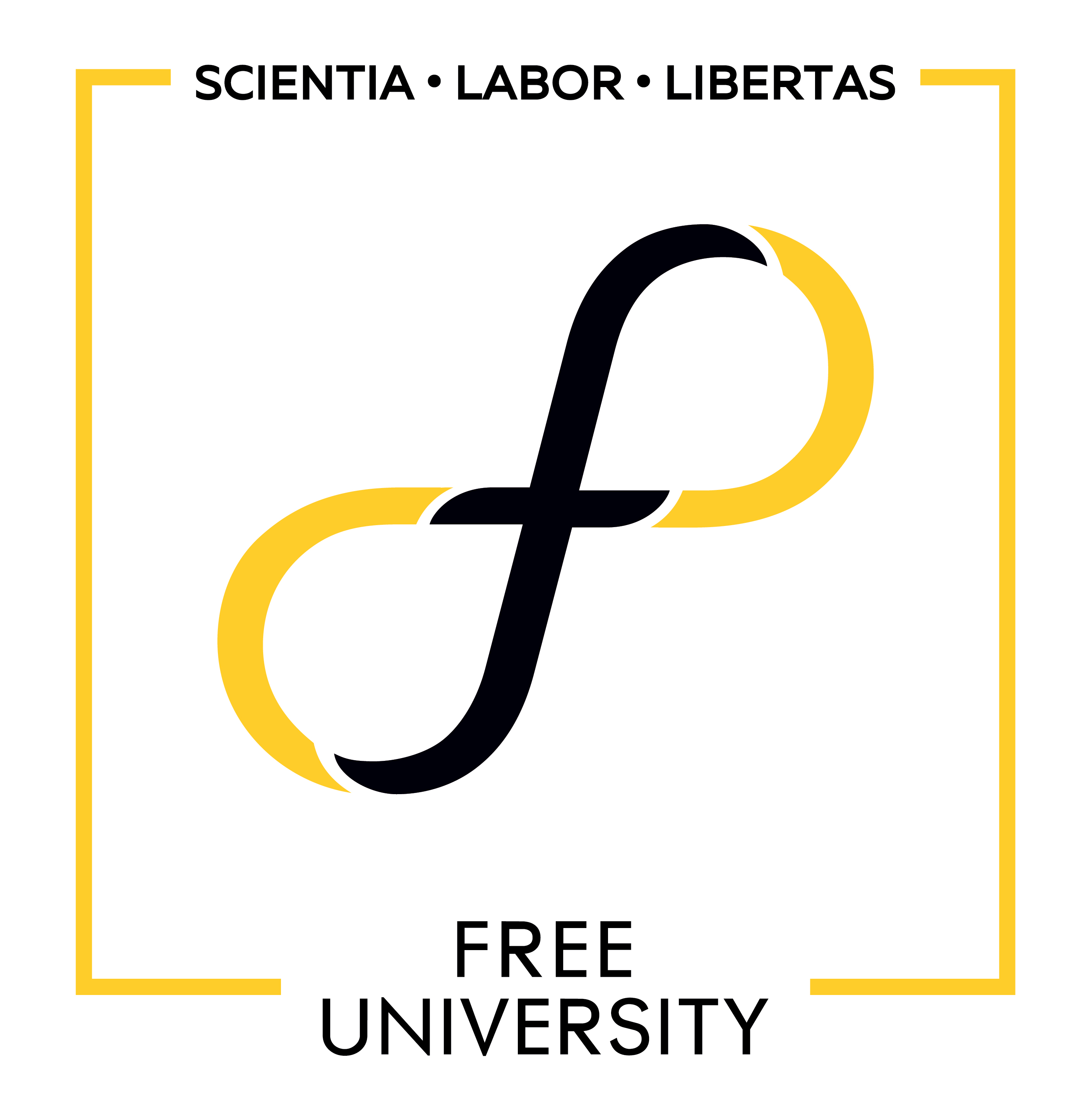GRADUATE SCHOOL OF SOCIAL AND NATURAL SCIENCES
PHD PROGRAM IN SOCIAL SCIENCES - DESCRIPTION
The Free University of Tbilisi PhD Program in Social Sciences represents the third level of higher education and is carried out in cooperation with other schools of the university.
The concept of the PhD program is based on the university's mission and vision to promote the creation of knowledge based on problem-oriented, practical, interdisciplinary and cross-disciplinary research.
Furthermore, the program's concept, curriculum structure, implementation methods and approach to methodological scientific knowledge align with current trends in the international academic sphere. Specifically, it reflects the evolving landscape of education and research, emphasizing the growing significance of interdisciplinary collaboration. This collaboration entails not only the cooperation of researchers from diverse fields but also a fundamental rethinking of the structure of scientific research and teaching.
The primary emphasis of the curriculum is not on traditional courses, but on the research component. The courses are designed to develop the fundamental skills necessary for conducting research with high academic value in social sciences. While a portion of the education component (doctoral seminars) focuses on comprehending scientific discourses, issues, and concepts in social sciences vital for interdisciplinary research. This aspect of the program allows students to plan the educational and research processes based on their interests and the specificities of their research topic.
Upon successful completion of the PhD program, the graduate is awarded the qualification - Doctor of Social Sciences. The duration of the program is a minimum of 3 years.
CURRICULUM
The curriculum consists of two components: an educational component and a research component. The educational component entails 50 credits.
The educational component is designed to enhance the doctoral candidate's expertise in both the chosen field and the methodological approach. The educational component includes:
- Courses aimed at equipping PhD students with the methodological tools and skills necessary for planning and implementing dissertation research in the field of social sciences.
- Courses that deepen knowledge in relevant fields and subfields of the PhD student's dissertation topic and involve in-depth processing of relevant scientific literature. Doctoral Seminars (mandatory and optional) are educational components tailored to the student's individual interests, which, in parallel to the work with their advisor and individual research, allows PhD students to delve into specific fields, subfields, or interdisciplinary problems (depending on the topic's specificity), process literature, deepen knowledge, and develop a conceptual and methodological framework relevant to the research topic. The effectiveness of the individual seminars is largely due to the fact that, in addition to a flexible study program, it gives PhD students an opportunity to work with other professors in addition to their advisor. This opportunity encourages and creates favorable conditions for interdisciplinary collaboration.
The research component entails the PhD students seeking and familiarizing themselves with scientific literature relevant to their dissertation topic, reviewing existing knowledge, forming and testing hypotheses, collecting and analyzing data, and executing, presenting and defending their dissertations. The research component also includes mandatory publication, as outlined by the regulations of the university's PhD Programs and Dissertation Councils Charter.
The interdisciplinary and interest-oriented nature of the program is most evident within the research component. The program ensures that PhD students have the opportunity to interact with specialists in various fields and subfields during the research process. This allows them to receive feedback from professors in their own field as well as from those in adjacent fields, enriching their research perspectives.
HOW TO APPLY TO THE PHD PROGRAM IN SOCIAL SCIENCES?
The Free University of Tbilisi PhD Program in Social Science accepts applications from candidates interested in the research of any field, subfield, or interdisciplinary problematics in social sciences. However, based on the scientific interests of the school and academic staff, priority is given to the following topics:
- Studies of nationalism, identity, and cultural memory
- International politics and regional studies
- History of ideas/intellectual history, including the history of Georgian political thought
- Study of religious institutions
- Religion and politics
- Political anthropology of the South Caucasus
- Georgia and the Caucasus: analysis of social and political institutions
- Cultural sociology
- Social psychology, cultural psychology, psychological anthropology
- Sociology/anthropology of affect
- Sociocultural analysis of narratives
WHO CAN APPLY FOR DOCTORAL STUDIES?
Anyone who holds a master’s degree (or a degree equivalent to a master's degree), has at least B2 level English language proficiency can apply to the program.
PhD applicants, upon successfully completing the Free University Graduate School application form will be selected for the interview.
TUITION FEE
The annual fee of the social sciences doctoral program is 4950 GEL.
Tuition fees are paid per semester.
STIPENDS AND FELLOWSHIPS
The Free University of Tbilisi Graduate School offers various funding opportunities for its PhD students, including Teaching Assistantship which are selected each semester on individual basis.
The funding request must be submitted by the doctoral student after he/she has been enrolled in the doctoral program.
ABOUT THE GRADUATE SCHOOL OF SOCIAL AND NATURAL SCIENCES
The Free University Graduate School of Social and Natural Sciences is a key structural element where scientific-research activities are integrated into the educational process.
The Graduate School combines the theory-heavy Master's and PhD programs of the Free University of Tbilisi, which are focused on the development of research and the creation of new scientific knowledge. These programs are:
- Master’s Program in Social Sciences
- PhD Program in Social Sciences
- Joint Master's Program in Natural Sciences with the Agricultural University of Georgia
- Joint PhD Program in Biology with the Agricultural University of Georgia
- Joint PhD Program in Chemistry with the Agricultural University of Georgia
- Joint PhD Program in Physics with the Agricultural University of Georgia
As the Master's Program in Natural Sciences, PhD Program in Chemistry, PhD Program in Biology and PhD Program in Physics are implemented by the Free University of Tbilisi and the Agricultural University of Georgia, the academic staff of both universities are involved in the management of the programs:
- Professor Giorgi Jorjadze of the Free University of Tbilisi is head of the physics component of the Master's Program in Natural Sciences and the PhD Program in Physics.
- Professor Nina Kulikova of the Agricultural University of Georgia is head of the biology component of the Master's Program in Natural Sciences.
- Professor Giorgi Muskhelishvili of the Agricultural University of Georgia is head of the PhD Program in Biology.
- Professor Revaz Korashvili of the Agricultural University of Georgia is head of the chemistry component of the Master's Program in Natural Sciences and the PhD Program in Chemistry.
The Graduate School's concept is inspired by the Anglo-Saxon model, a departure from the typical approach applied in Georgia. Its operations strongly embody the Free University of Tbilisi's research mission, adhering to three core principles of interdisciplinarity, applicability and internationality, both structurally and in terms of content.
The curricula of the programs are designed in such a way as to facilitate the creation of new scientific knowledge within the framework of individual research endeavors. This aspiration implies:
- An individualized approach to research
- An emphasis on interdisciplinarity and cross-discipline methodological frameworks
- The creation of valuable and original knowledge that meets international academic standards (as opposed to simply adapting existing paradigms to local contexts)
The structure of the PhD programs is particularly conducive to interdisciplinary as well as multidisciplinary and cross-disciplinary research. It achieves this goal through several institutionalized mechanisms:
- Committee compositions based on the principle of interdisciplinarity
- International collaborations
- Methodological concept of the curricula
The aspiration to generate interdisciplinary and original knowledge is evident at various stages of the operation of PhD programs:
- During the admission process for PhD programs, where candidates are required to submit research proposals demonstrating originality. Admission decisions are based on evaluations by members of the Dissertation Council.
- Throughout the implementation of the research component of the curriculum, during which PhD students present their work to a committee for evaluation at each stage of research (on average twice per semester). The committee assesses the research work/activities based on international scientific standards.
- Dissertation Committees may consist of Dissertation Council members and invited specialists. The committees created for admissions to PhD programs and for the evaluation of the research component are always assembled taking into account the principle of interdisciplinarity.
Dean
Coordinator

Lana Gabriaze
Coordinator of the Graduate School of Social and Natural Sciences
საქართველო და გაერთიანებული სამეფო მე-19 საუკუნის მიწურულს: მარჯორი და ოლივერ უორდროპების პირადი მიმოწერის საფუძველზე (წერილების გამოცემა და ქართული თარგმანი) (2023 - 2026)
საქართველო და გაერთიანებული სამეფო მე-19 საუკუნის მიწურულს: მარჯორი და ოლივერ უორდროპების პირადი მიმოწერის საფუძველზე (წერილების გამოცემა და ქართული თარგმანი) (2023 - 2026)
პროექტის ფარგლებში შესწავლილი იქნება და გამოიცემა ოქსფორდის უნივერსიტეტის ბოდლის ბიბლიოთეკაში დაცული მარჯორი და ოლივერ უორდროპების მიმოწერა, რომელიც ცოტა ხნის შემოსწირეს ბიბლიოთეკას ოლივერ უორდროპის შთამომავლებმა.
საქართველო და გაერთიანებული სამეფო მე-19 საუკუნის მიწურულს: მარჯორი და ოლივერ უორდროპების პირადი მიმოწერის საფუძველზე (წერილების გამოცემა და ქართული თარგმანი) (2023 - 2026)
პროექტის ფარგლებში შესწავლილი იქნება და გამოიცემა ოქსფორდის უნივერსიტეტის ბოდლის ბიბლიოთეკაში დაცული მარჯორი და ოლივერ უორდროპების მიმოწერა, რომელიც ცოტა ხნის შემოსწირეს ბიბლიოთეკას ოლივერ უორდროპის შთამომავლებმა.






